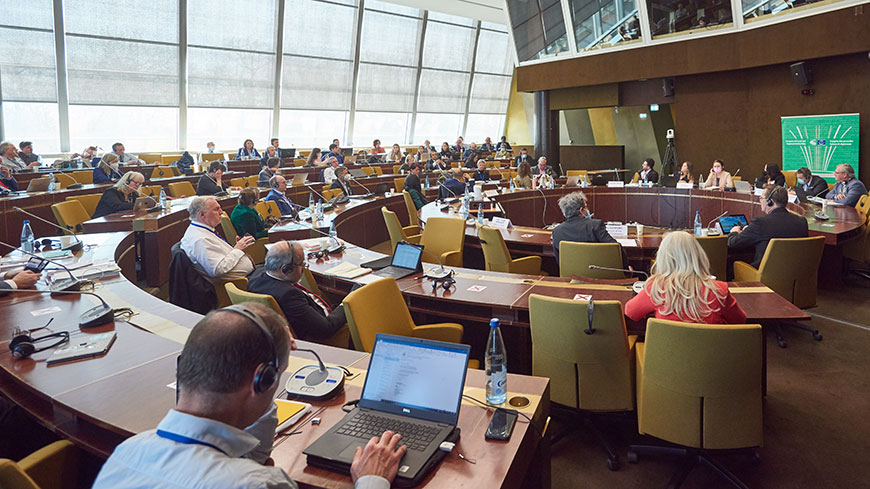If all democratic life implies a majority and an opposition, the rapport between the two groups must be based on a constructive dialogue rather than on a permanent confrontation: through several examples, the Chamber of Regions reminded, on Wednesday 23 March 2022, that the debate between the majority and the opposition constitutes, in itself, an indicator of the quality of democracy and pluralism.
Rapporteur of a resolution and a recommendation on "the situation of independent and opposition candidates in local and regional elections", Vladimir Prebilic (Slovenia, SOC/V/DP) focused on the particular situation of independent candidates of all political parties. In most countries their number has risen significantly in recent years. In Slovenia, for example, 60% of candidates in the last local elections were independents, twice as many as in 2010. But some candidates may face administrative or legal obstacles, or even outright discrimination: "local authorities must instead intervene to facilitate their inclusion on candidate lists, because respect for independents strengthens local and regional pluralism," said Prebilic.
Restoring balance in the relationship between majority and opposition
In an opinion published in 2019 on the relationship between the parliamentary majority and the opposition in a democracy, the Council of Europe's European Commission for Democracy through Law (Venice Commission) established a series of criteria aimed at optimizing relations between the two groups. Pierre Garrone, head of the division of elections and political parties of this body, reiterated the main lines, with first of all the importance of respecting the values and freedom of the opposition: "democracy is not the domination of the majority over the opposition, but the loyal and constructive cooperation, with shared responsibilities", he stressed. He also recalled that both the majority and the opposition must be able to enjoy the same rights, and that the former must not "change the rules of the game" during their term of office, to their sole benefit.
Some countries have developed original approaches to facilitate cooperation between majorities and oppositions, but also to improve their representativeness to citizens. This is the case in some Swiss cantons, as Benno Scherrer, President of the Cantonal Council of Zurich, explained: here, the presidency is annual and is not linked to the majority of the moment, but to a periodicity that varies according to the importance of each party: it is therefore possible to have presidents of small parties at the head of the Council, even if they are not in the majority, which encourages pluralism. However, it is the best elected parties that hold the cantonal presidencies for the longest time. In addition, in order to break out of the traditional confrontation between majority and opposition, majorities are negotiated on the basis of themes and thus evolve continuously, rather than remaining fixed in party disciplines. Finally, any "minority" can request, with 50,000 votes at the federal level or 3,000 at the cantonal level, that a referendum be held on a subject that is important to them.
Permanent debate is necessary for democratic life
Josef Neumann, a member of the regional parliament of North Rhine-Westphalia (Germany), detailed the political organization of the latter, with coalitions that evolve according to the elections. While he admits that it is neither simple nor easy to sit in the opposition, he believes that respect for the opposition is "an indicator of democracy", and that permanent debate is necessary for both the opposition and pluralism.
During the debate, the Lithuanian youth delegate Beatrice Jurgaityte invited local authorities to encourage pluralism, "the essence of democracy". Kristoffer Tamsons (Sweden, EPP/CCE) pointed out that the smallest minority in a democracy is "the citizen himself", while adding that the democratic debate also takes place outside the assemblies, and that this reality should be better taken into account. Cecila Dalman Eek (Sweden, SOC/V/DP) insisted on the challenges of democratic dialogue, underlining that elected representatives sometimes have to take decisions that are necessary but not well accepted by a part of the citizens, for example when it comes to the climate. Finally, some members were concerned about the growing importance of "Fake News" in the media's treatment of political life and felt that the increase in the number of independent candidates should not lead to populism or the "fragmentation of the political system".
********
42nd Session
Agenda – Web page – Multimedia (Live broadcast, interviews, videos and photos)




